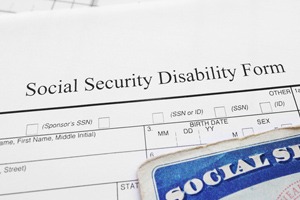
On March 20, 2015, the Social Security Administration (SSA) published new rulings on the submission of evidence, including evidence that may be adverse, for disability claims. Prior to the new regulation, claimants were only required to submit “material” evidence that proves disability. This new regulation, however, removes the materiality standard and requires claimants to inform SSA about or submit all evidence that relates to the disability known to the claimant. There are two exceptions – material subject to the attorney-client privilege and the attorney’s “analysis of the claim.”
What This Means for Your Claim
As a result of this new rule, both favorable and unfavorable evidence that is not subject to one of the above narrow exceptions must be submitted to SSA. This rule applies at each level of the administrative process, including appeals after a hearing has been held. For example, if the claimant appeals a decision by an Administrative Law Judge (ALJ) to the Appeals Council, he has this new duty to submit all evidence. We understand this to mean that the claimant, or their attorney, need only submit all new evidence to the Appeals Council if it relates to the period on or before the ALJ’s decision. While the burden to disclose and submit evidence rests on the claimant, representatives now have a specific duty to “act with reasonable promptness to help obtain the information or evidence that the claimant must submit” under this regulation.
Exceptions to the Rule?
Importantly, the two narrow exceptions outlined above do not protect withholding of “factual information, medical source opinions, or other medical evidence” that SSA may consider in determining whether a claimant is disabled. For example, the attorney-client privilege will not permit a refusal to disclose information to SSA about a medical source that a claimant told their attorney they have seen. Further, the attorney’s “analysis of a claim” does not extend to include “medical evidence, medical source opinions, or any other factual matter” that SSA may consider in the disability evaluation process. Consequently, if a claimant’s doctor sends her or her attorney a written opinion, or record, about the claimant’s medical condition, these reports must be submitted. While those documents are not protected by any exception (even if the attorney drafted the form completed by that doctor, for example), an attorney who specializes in disability benefits can advise on other ways to deal with unfavorable or inaccurate information contained in a document. Moreover, if an attorney conducts a consultation with any medical source about the claimant’s medical condition, the information obtained may still be protected from disclosure (e.g. notes the attorney takes during or after that discussion are exempted from disclosure as an “analysis of the claim”).
Seeking Professional Help
SSA reiterates the agency’s duty to develop the file and does not require claimants or their representative to request all evidence. SSA further explains that this rule only applies to evidence received by the claimant or the representative. There are other relevant nuances to this rule that an experienced attorney can advise about, including what evidence does not count as “evidence” within the meaning of this regulation, and therefore is not required to be submitted. Our attorneys at Disability Attorneys of Michigan, Ball Johnson, P.C. can evaluate evidence on a case-by-case standard in order to determine whether evidence should be requested and submitted if received, or whether it falls under an exception or other nuance not requiring submission. The laws and rules surrounding Disability claims in Michigan are complex and ever-changing. Don’t go through it alone! Fill out our form to schedule a free consultation, or to discuss any questions regarding SSA’s rules and new regulations. Call the Disability Attorneys of Michigan today at (888) 678-5839.
- For the complete Federal Register publication, including SSA’s response to comments, see http://www.gpo.gov/fdsys/pkg/FR-2015-03-20/pdf/2015-05921.pdf.
- 20 CFR 404.1740(b)(1), 416.1540(b)(1) (2015).
- 20 CFR 404.1512(b)(2)(ii), 416.912(b)(2)(ii) (2015).
- 20 CFR 404.1512(c) and 416.912(c) require only that claimants, and their representatives, submit all evidence “received” from another source, and that it must be submitted “in its entirety.”
Blog Post Provided By:
Disability Attorneys of Michigan
30500 Van Dyke Ave, Ste. 400
Warren, Michigan 48093
